Ethiopia, known for its ancient history and vibrant culture, is a nation with unique and significant challenges. This article delves into some of the key weaknesses that the country grapples with, spanning economic, political, social, and environmental aspects.
Economic Struggles
Ethiopia is a nation marked by its vibrant culture and historical significance, yet it faces profound economic challenges that stunt its growth. One of the most pressing issues is the high rate of unemployment, particularly among the youth. Despite being among the fastest-growing economies in Africa, the benefits of this growth have not trickled down to the majority of the population.
A crucial factor contributing to Ethiopia’s economic struggles is its limited industrialization. The country relies heavily on agriculture, which employs about 70% of its workforce. However, productivity in this sector remains low due to outdated farming techniques and insufficient investment in modern agricultural technology. As a result, many Ethiopian farmers struggle to earn a sustainable income.
Moreover, the inflation rate in Ethiopia has been alarmingly high. According to the World Bank, Ethiopia’s inflation rate was around 20% in 2023. This has led to an increase in the cost of living, making it difficult for average citizens to afford basic necessities such as food, housing, and healthcare. The high inflation rate is partly driven by supply chain disruptions and inefficient market structures.
Public debt is another significant challenge for Ethiopia. The country has borrowed extensively to finance infrastructure projects such as roads, railways, and dams. While these projects are essential for long-term development, the debt burden raises concerns about the nation’s fiscal sustainability. As of 2023, Ethiopia's debt-to-GDP ratio was approximately 57%, which poses risks to economic stability.
Another layer to this complex issue is the foreign exchange shortage. Ethiopia has long struggled with a deficit in its foreign currency reserves, which affects its ability to import essential goods and services. The shortage also impacts the private sector, as businesses face difficulties in accessing foreign currency for their operations. This constraint hinders investment and hampers the growth of industries that could diversify the economy.
"Ethiopia urgently needs to reform its economic policies to foster a more inclusive and sustainable growth model. Without addressing these fundamental issues, the country risks perpetuating cycles of poverty and inequality," says Dr. Abebe Teklemariam, an economist specializing in African economies.Land ownership policies also play a pivotal role in Ethiopia's economic struggles. The government owns all land in Ethiopia, and citizens can only lease it. This arrangement creates uncertainties for farmers and businesses, as they have limited rights over the land they use. Consequently, this dissuades long-term investments in agricultural and industrial ventures.
To combat these economic challenges, Ethiopia needs a comprehensive approach. Strengthening industrialization efforts by investing in manufacturing and technology can provide jobs and reduce dependency on agriculture. Reforming land ownership policies to provide more security would encourage investments. Additionally, implementing macroeconomic policies to control inflation and manage public debt can create a more stable economic environment. International partnerships and aid could also play a significant role in supporting these efforts, but local policy reforms are paramount.
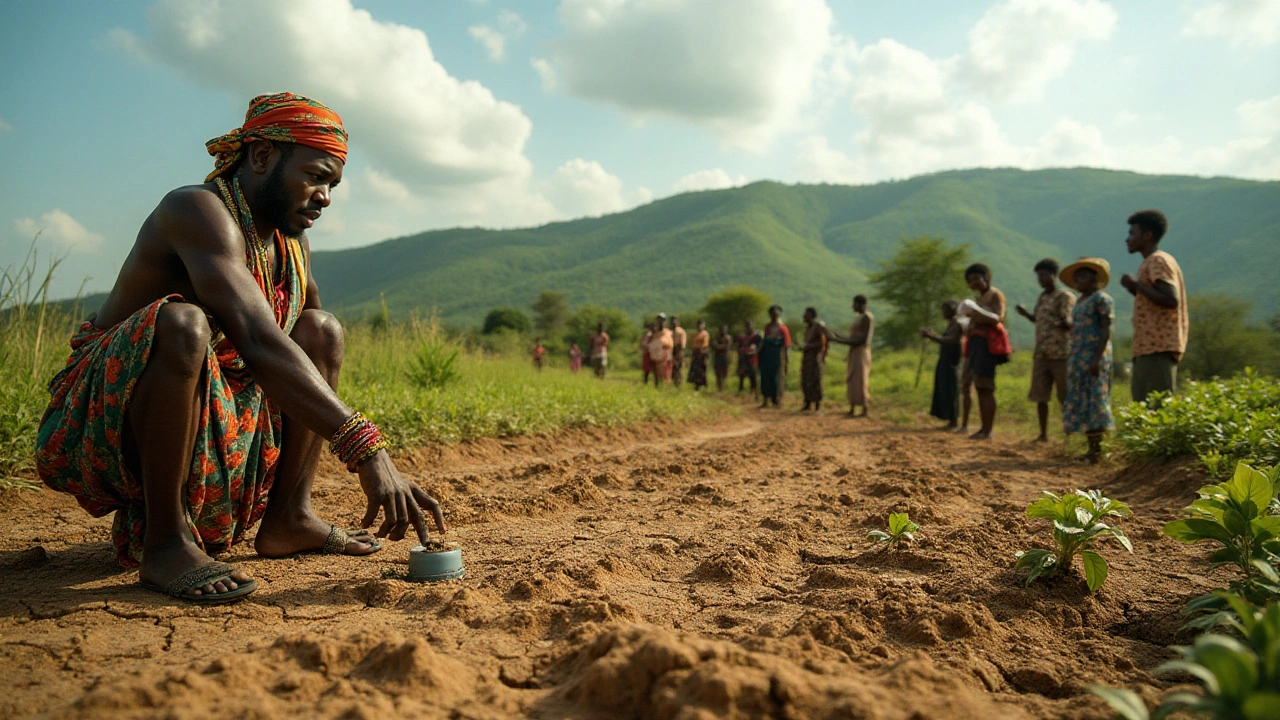
Political Tensions
Political tensions in Ethiopia are complex and multifaceted, often rooted in the country’s diverse ethnic composition. Ethiopia is home to over 80 different ethnic groups, with the largest being the Oromo and Amhara. Historically, this diversity has been a source of both strength and division. Recent years have seen escalating conflicts and tensions that pose serious challenges to national unity and stability.
One of the most significant issues is the conflict in the Tigray region. The Tigray People's Liberation Front (TPLF), once a dominant political force, found itself at odds with the central government. In 2020, the dispute escalated into a violent conflict, leading to thousands of deaths and a humanitarian crisis. This conflict has not only caused immense suffering but has also strained Ethiopia's relations with neighboring countries and international partners.
Political turmoil is also evident in the frequent tensions between the federal government and various regional states. Prime Minister Abiy Ahmed's efforts to centralize power and implement reforms have been met with resistance from regions striving for greater autonomy. This push-and-pull dynamic can be seen in the Oromia region, where demands for more self-rule have led to periodic uprisings and violent clashes.
Election-related violence is another significant concern. The 2021 general elections were marred by allegations of fraud, irregularities, and boycotts by major opposition parties. While the government declared the elections a success, many Ethiopians and observers expressed doubt about their fairness and transparency. This skepticism has resulted in widespread distrust in the political process and institutions.
Amidst these tensions, the role of political prisoners cannot be overlooked. Human rights organizations consistently report on the detainment and mistreatment of activists and dissenters. These actions undermine the democratic principles the government claims to uphold and further alienate segments of the population.
The Horn of Africa, where Ethiopia is situated, is a strategic yet volatile region. Political instability within Ethiopia has ripple effects on its neighbors like Eritrea, Somalia, and Sudan. For instance, the conflict in Tigray has drawn in Eritrean forces and led to tensions with Sudan over refugee flows and border disputes.
Ethiopia's trajectory towards stability or further crisis has significant implications not only for its own people but also for the broader region and international community. - International Crisis Group
A major contributing factor to political instability is economic disparity. The uneven development across regions fuels grievances and animosity. For example, although Addis Ababa enjoys rapid growth and modernization, rural areas often lag with inadequate infrastructure and services. This disparity exacerbates feelings of marginalization and feeds into broader political discontent.
Foreign influence also plays a role. Powers like China, the United States, and the European Union have vested interests in Ethiopia, each with its own agenda. While foreign investments bring economic benefits, they also come with political strings attached, complicating Ethiopia's internal politics.
Education and public awareness are critical. A well-informed citizenry is better equipped to participate in the democratic process and hold leaders accountable. Initiatives aimed at improving educational access and fostering civic engagement can help mitigate some of the political tensions.
Addressing the political tensions in Ethiopia requires a multi-pronged approach, inclusive dialogue, and a commitment to addressing the underlying causes of conflict. While challenges are significant, there is also potential for positive change through collaborative efforts and sustained peacebuilding initiatives.
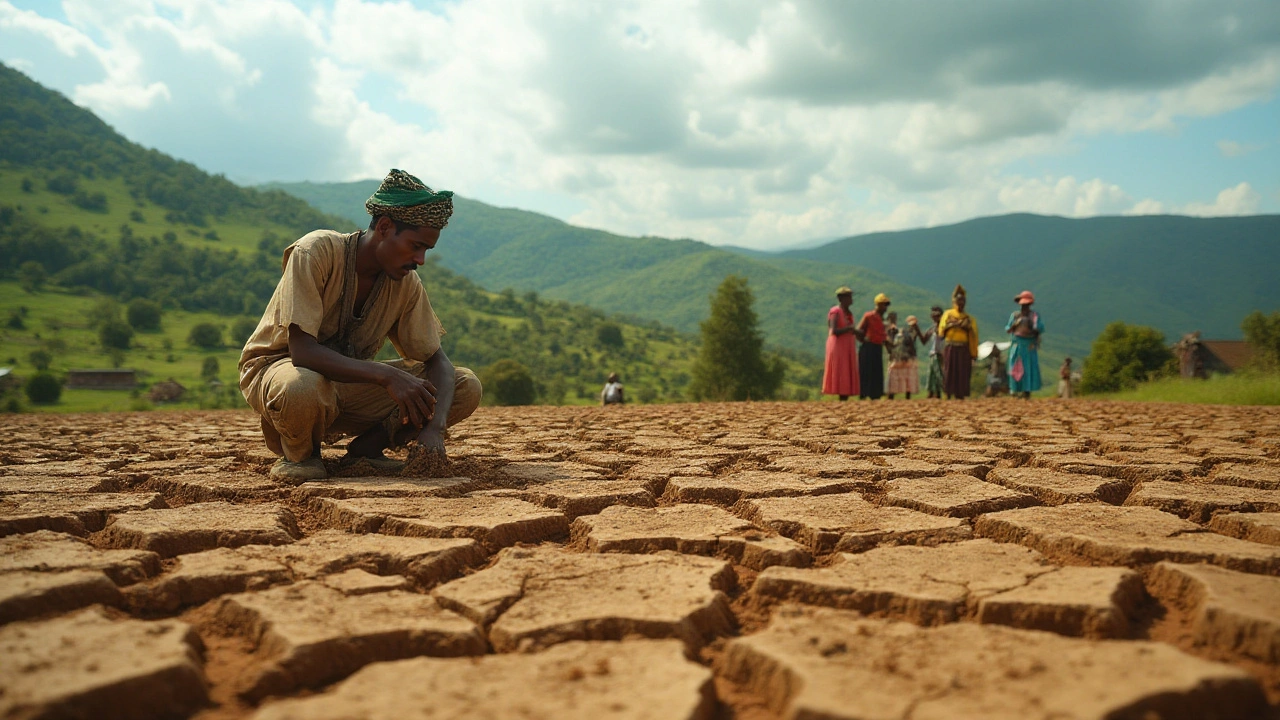
Social Issues
Ethiopia faces a variety of social issues that significantly affect its development and the well-being of its citizens. One critical challenge is education. Despite recent progress, the education system still shows glaring gaps. Many rural areas lack access to basic educational facilities, and even where schools exist, they are often under-resourced and crowded. Girls, in particular, face barriers such as early marriage and gender-based violence which prevent them from attending school.
Healthcare also presents a significant challenge in Ethiopia. Though progress has been made in reducing preventable diseases, the healthcare system still struggles with limited infrastructure and insufficient medical supplies. Many regions are underserved by healthcare professionals, leading to high mortality rates from otherwise treatable conditions. Maternal and child health is a particularly pressing issue, with the country recording one of the highest maternal mortality rates in the world.
Poverty remains a fundamental barrier to development in Ethiopia. Despite being one of the fastest-growing economies in the region, the benefits of economic growth are unevenly distributed. Urban areas, especially the capital city Addis Ababa, have seen more substantial improvements, but rural communities continue to live in extreme poverty. This disparity exacerbates other social problems, including access to clean water and nutritious food.
Youth Unemployment
A high rate of youth unemployment adds a layer of complexity to Ethiopia's social issues. The youth in Ethiopia comprises a significant portion of the population, and many are increasingly disillusioned by the lack of job opportunities. This unemployment not only stifles economic growth but also fosters social unrest and contributes to migration issues, as many young people leave in search of better opportunities abroad.
Cultural and Ethnic Tensions
Cultural and ethnic diversity are both a strength and a challenge for Ethiopia. The country is home to more than 80 different ethnic groups, each with its own languages, customs, and traditions. However, this diversity also leads to ethnic tensions and conflicts. Historical grievances and competition for resources have often resulted in violent clashes, undermining stability and social cohesion. Establishing a more inclusive and equitable society remains a crucial but challenging task.
"For Ethiopia to navigate its future successfully, it must address these social challenges head-on," says sociologist Dr. Ayele Tsige. "This requires not just policy changes but a comprehensive approach involving all stakeholders."
Gender Inequality
Gender inequality is another significant issue in Ethiopia. Women and girls often face systemic discrimination and have limited access to resources and opportunities. Traditional roles and patriarchal norms restrict women's participation in economic activities and decision-making processes. Efforts to combat gender inequality have been made, but significant gaps remain that need to be addressed to ensure equal rights and opportunities for all Ethiopians.
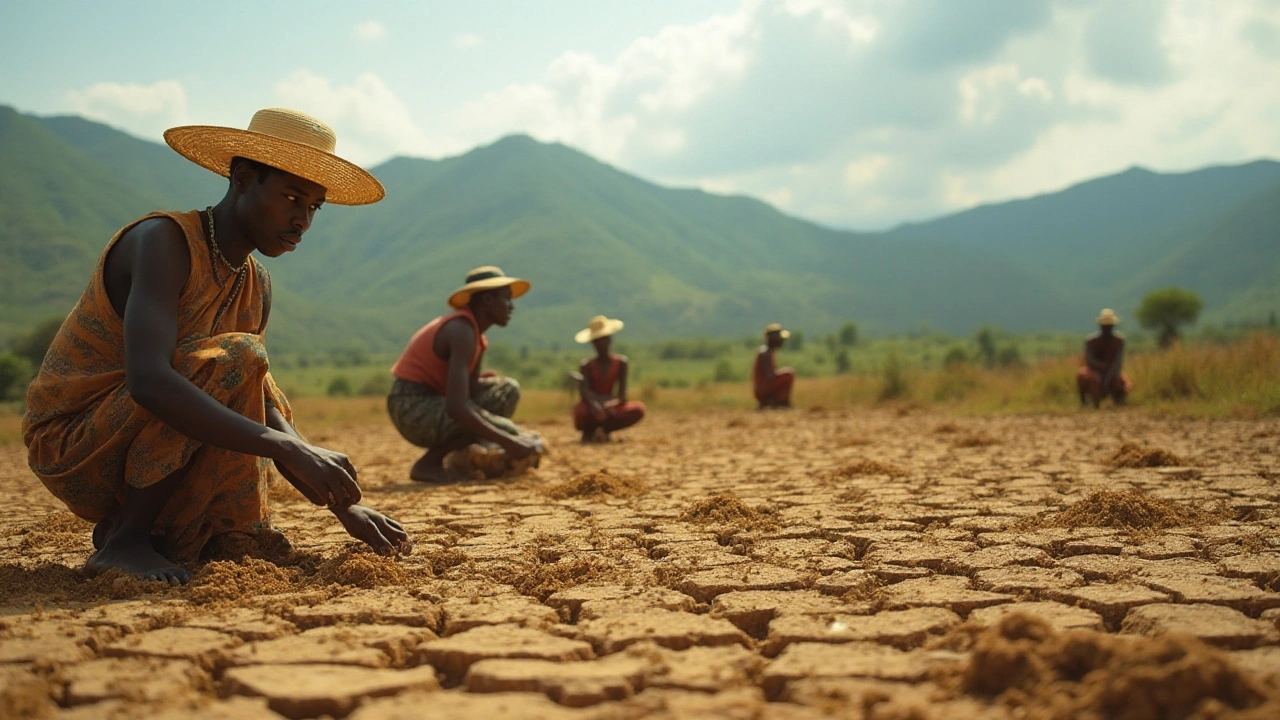
Environmental Concerns
Ethiopia's environmental issues are numerous and complex. One of the most pressing concerns is deforestation. The country's rapidly growing population relies heavily on wood for fuel, leading to significant deforestation. This problem is not new, but its impact is becoming more visible as forest cover dwindles dramatically. Between 1990 and 2015, Ethiopia lost almost 3 million hectares of forest, which is alarming considering the crucial role forests play in combating climate change.
Another major concern is soil erosion. As more land is cleared for agriculture, the risk of soil erosion increases. In areas like the Ethiopian Highlands, it is particularly severe due to the steep terrain and heavy rainfall. Soil degradation poses a significant threat to agriculture, which is the backbone of the Ethiopian economy. Farmers struggle with declining soil fertility, impacting crop yields and food security.
Droughts are also a significant environmental challenge in Ethiopia. The country’s climate is highly variable, and certain regions experience frequent droughts. These droughts can devastate crops and livestock, severely impacting rural communities. In 2015 and 2016, Ethiopia faced one of its worst droughts in decades due to the El Niño weather phenomenon. Millions of people were affected, requiring international aid to avert a humanitarian disaster. The unpredictable weather patterns make it difficult for farmers to plan and sustain their livelihoods.
Water scarcity is another critical issue. Despite having several significant river systems like the Nile and the Awash, much of Ethiopia struggles with water access. The challenge lies in the uneven distribution of water resources, overuse, and pollution. Urban areas often face acute water shortages, impacting daily life and worsening public health issues.
Additionally, pollution is becoming an increasing problem. As industrialization progresses, emissions from factories and vehicles contribute to air and water pollution. Cities like Addis Ababa experience poor air quality, affecting the health of residents. Industrial waste and untreated sewage can contaminate water bodies, putting both human and ecological health at risk. The balance between economic growth and environmental protection remains a delicate one.
Climate change exacerbates these environmental problems. Changes in temperature and precipitation patterns pose long-term challenges for Ethiopia's agriculture and water resources. Experts predict that without mitigation and adaptation strategies, the effects of climate change could worsen the country's environmental issues, hampering development efforts. As former UN Secretary-General Ban Ki-moon said,
"Climate change does not respect borders; it does not respect who you are – rich and poor, small and big. Therefore, this is what we call global challenges, which require global solidarity."
Ethiopia is taking steps to address these concerns. Reforestation programs aim to restore lost forest cover. For instance, the country's 'Green Legacy' initiative has set ambitious targets to plant billions of trees. Efforts are also underway to implement soil conservation practices to mitigate erosion. Projects to improve water management and usage efficiency are in progress, aiming to alleviate water scarcity. These measures are crucial for tackling the environmental challenges, yet sustained effort and international support will be essential to make meaningful progress.
Addressing Ethiopia's environmental concerns requires a multifaceted approach. It involves balancing development with environmental stewardship, investing in sustainable agricultural practices, and promoting renewable energy sources. Public awareness and community involvement play critical roles in achieving sustainable development. By working together, both locally and globally, we can overcome the environmental challenges Ethiopia faces and pave the way for a more sustainable future.
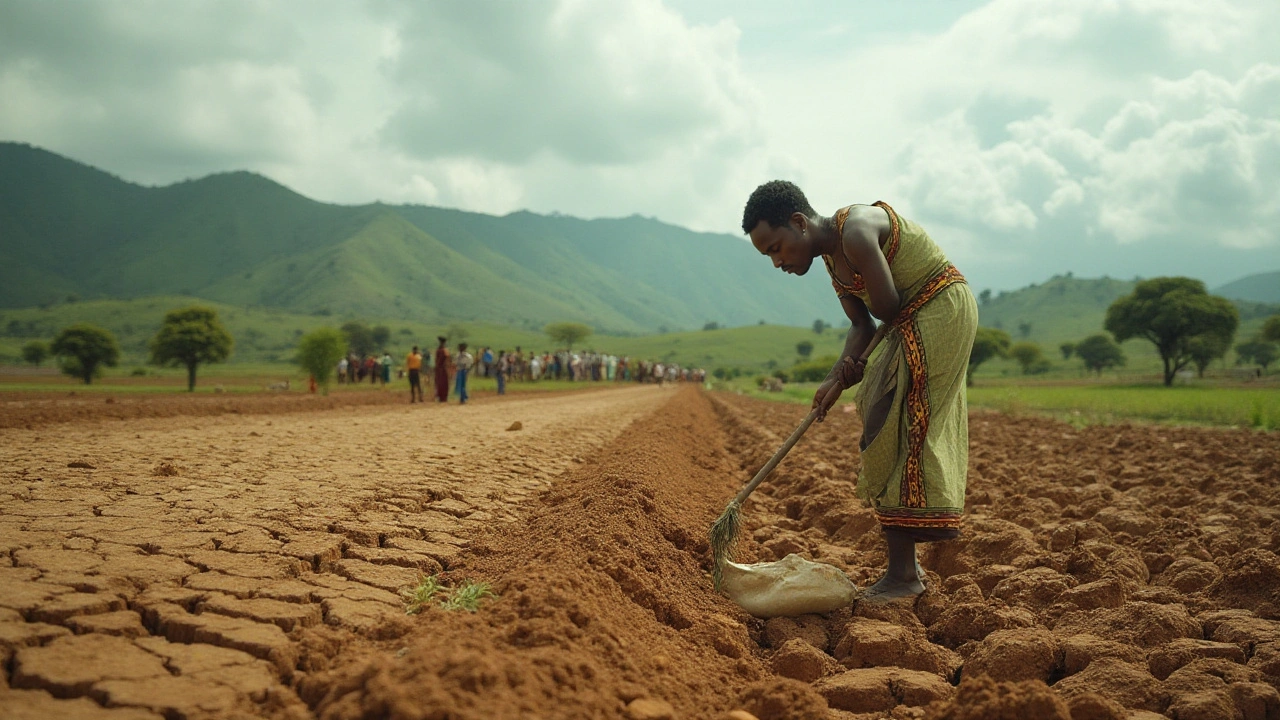
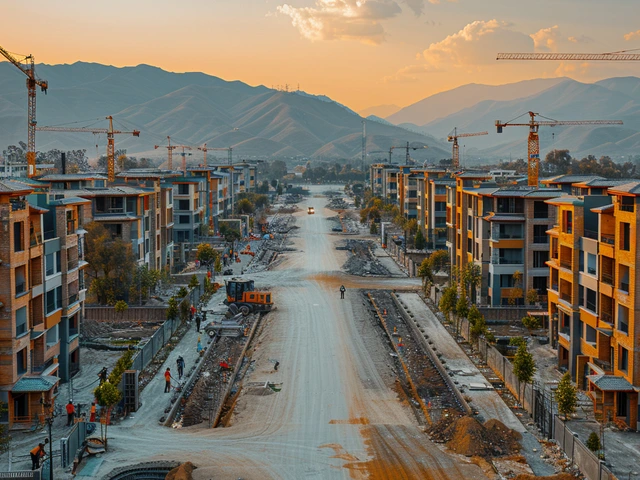 Why Are Houses So Expensive in Ethiopia? A Comprehensive Look at the Factors Driving High Property Prices
Why Are Houses So Expensive in Ethiopia? A Comprehensive Look at the Factors Driving High Property Prices
 Why Ethiopia is a Must-Visit Destination: Culture, History, and Natural Beauty
Why Ethiopia is a Must-Visit Destination: Culture, History, and Natural Beauty
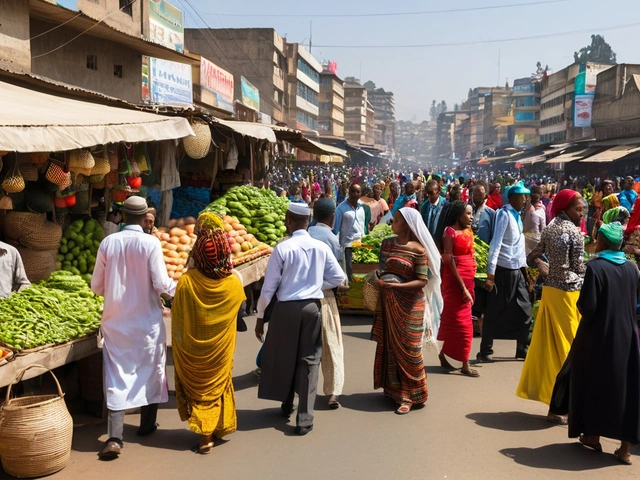 Moving to Ethiopia: A Guide for Americans
Moving to Ethiopia: A Guide for Americans
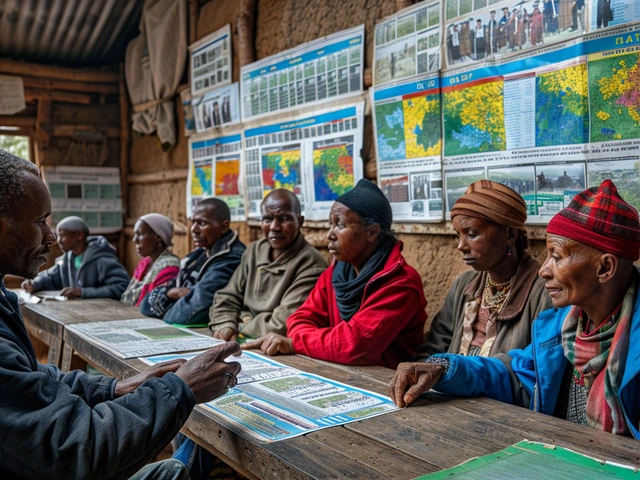 Exploring the 9 Core Areas of Occupation: A Comprehensive Guide
Exploring the 9 Core Areas of Occupation: A Comprehensive Guide
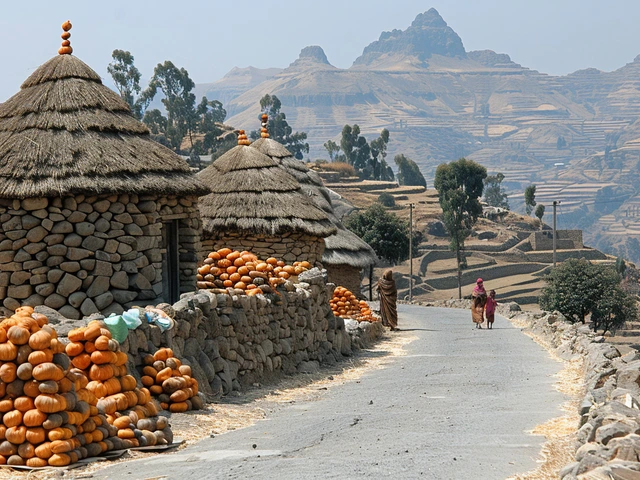 Understanding Poverty in Ethiopia: Facts and Insights
Understanding Poverty in Ethiopia: Facts and Insights
MONA RAMIDI
August 19, 2024 AT 17:34Honestly, reading this feels like watching a drama where every act just keeps piling on tragedy after tragedy. The economic section is a never‑ending saga of debt and inflation that makes you want to scream. Then the political turmoil is tossed in like a plot twist that nobody asked for. Social issues are listed like a grocery list, no depth or empathy. And the environmental problems? Just another bleak chapter in this endless nightmare.
Stop sugar‑coating it, Ethiopia needs a real overhaul now.
grace riehman
August 19, 2024 AT 22:40i get ur point but cant ignore the fact that Ethiopia's culture is sooo rich
its not all doom and gloom like u say
Vinay Upadhyay
August 20, 2024 AT 07:00Wow, your "insightful" analysis really captures the nuance of a continent‑wide crisis. Let me correct your spelling: “sooo” should be “so”. Also, saying “its not all” ignores the apostrophe in “it’s”. But sure, let’s just pretend all problems vanish with a smile.
Thanks for the masterpiece.
Eve Alice Malik
August 21, 2024 AT 02:26There's a lot to unpack here, and I think we should highlight the positive steps Ethiopia is already taking. The Green Legacy tree‑planting drive, for example, shows real grassroots momentum. Also, community‑based water management projects are sprouting in the highlands, giving farmers more resilience during dry spells. While challenges remain, acknowledging these initiatives can inspire more support and collaboration across the region.
Debbie Billingsley
August 21, 2024 AT 16:20We must protect Ethiopia's heritage.
Patrick Van den Berghe
September 19, 2024 AT 00:53Ethiopia's challenges are deeply rooted in history and geography. The economy relies heavily on agriculture and that creates vulnerability when rains fail. Industrial diversification remains limited and that stalls job creation for the growing youth population. Inflation erodes purchasing power and pushes basic goods out of reach for many families. Public debt continues to climb and that narrows fiscal space for essential services. Land ownership policies restrict long term investment in both farming and manufacturing. Political tensions add uncertainty and deter both domestic and foreign investors. Ethnic diversity, while a strength, can become a source of conflict when resources are scarce. Social issues such as gender inequality and limited education access hinder human development. Healthcare infrastructure is uneven and that results in preventable mortality. Environmental degradation like deforestation and soil erosion undermines agricultural productivity. Water scarcity affects both urban centers and rural villages and that fuels competition over limited resources. Climate change amplifies drought frequency and intensity across the highlands and lowlands. Despite these obstacles, community initiatives are emerging to promote sustainable practices and renewable energy adoption. Continued international cooperation and locally driven solutions are essential for Ethiopia to navigate its complex path forward.